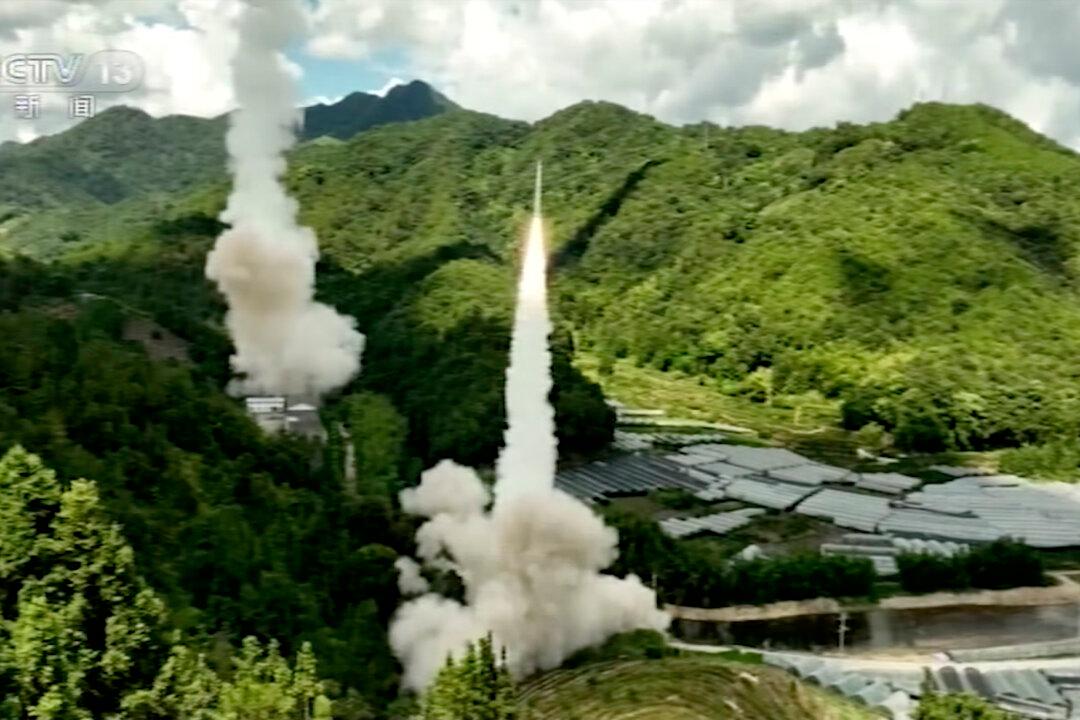Beijing said it was “discontent” with Australia, Japan, and the United States for their condemnation of the launching of military ballistic missiles into the waters around Taiwan, calling it “finger-pointing” and “absolutely unacceptable.”
In a joint statement, Australian Foreign Minister Penny Wong, Japanese Foreign Minister Hayashi Yoshimasa, and the U.S. Secretary of State Antony Blinken expressed their concern about Beijing’s decision to conduct large-scale military exercises.





